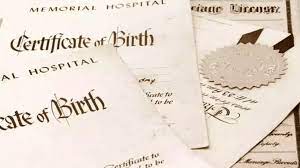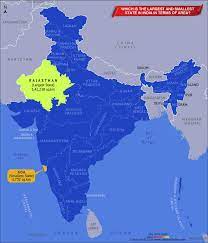
Bill Proposed to Digitize Birth Records and Link Aadhaar for Registration: The Union Home Ministry has introduced a new Bill to amend the Registration of Birth and Death Act 1969 in the ongoing session of Parliament. The proposed revisions aim to digitise birth data and make Aadhaar mandatory for registration of births and deaths. The key objective is to streamline documentation processes, ensure accurate record-keeping, and facilitate various government services.
Daily Current Affairs Quiz: July 2023
The right to documentation, including a birth certificate, is essential for individuals to lead a dignified life. The Registration of Births and Deaths Act of 1969 was passed in order to record important events in the country. Currently, Aadhaar is not obligatory for birth and death registration, and the new amendments will give it legal validity. The Registrar General of India (RGI) has been authorized to perform Aadhaar authentication for births and deaths.
Key Provisions of the Bill:
Aadhaar Mandatory for Birth Registration:
The Bill intends to make Aadhaar mandatory for anyone who have it at birth and death registration. This measure aims to enhance the accuracy and authenticity of records.
Sharing Data with the RGI:
States will be required to sign a Memorandum of Understanding (MoU) with the RGI to share data through an Application Programming Interface (API). The RGI will keep its own record of births and deaths, and states will be required to transmit real-time data.
Wide-ranging Applications of Birth Certificates:
- The Bill mandates the use of birth certificates for various purposes, including enrollment in schools, voter registration, marriage, passport issuance, and government job applications.
Significance of Data Sharing:
Real-time data exchange will allow the National Population Register (NPR) and electoral register, as well as databases such as Aadhaar, ration cards, passports, and driving licences, to be updated. The constant updating of population data will reduce the need for periodic enumerations and provide an accurate population count.
Concerns Regarding the Bill:
Critics raise concerns about the proposed amendments being used as a mechanism for population control and surveillance. The linking of Aadhaar and databases has previously raised privacy concerns, and the Supreme Court has recognized the fundamental right to privacy in such cases.
Provisions of the Registration of Births and Deaths (RBD) Amendment Bill, 2023:
- The Bill simplifies registration procedures for births and deaths and applies to individuals born after its enactment.
- States must register births and deaths on the Civil Registration System (CRS) site of the Centre and communicate the information with the Registrar General of India.
- Aadhaar numbers of parents and informants will be collected during birth registration if available.
- Medical institutions will be required to provide cause of death certificates to the Registrar and the nearest relative.
- Special “Sub-Registrars” will be appointed to expedite registration and issuance of death certificates during disasters or epidemics.





